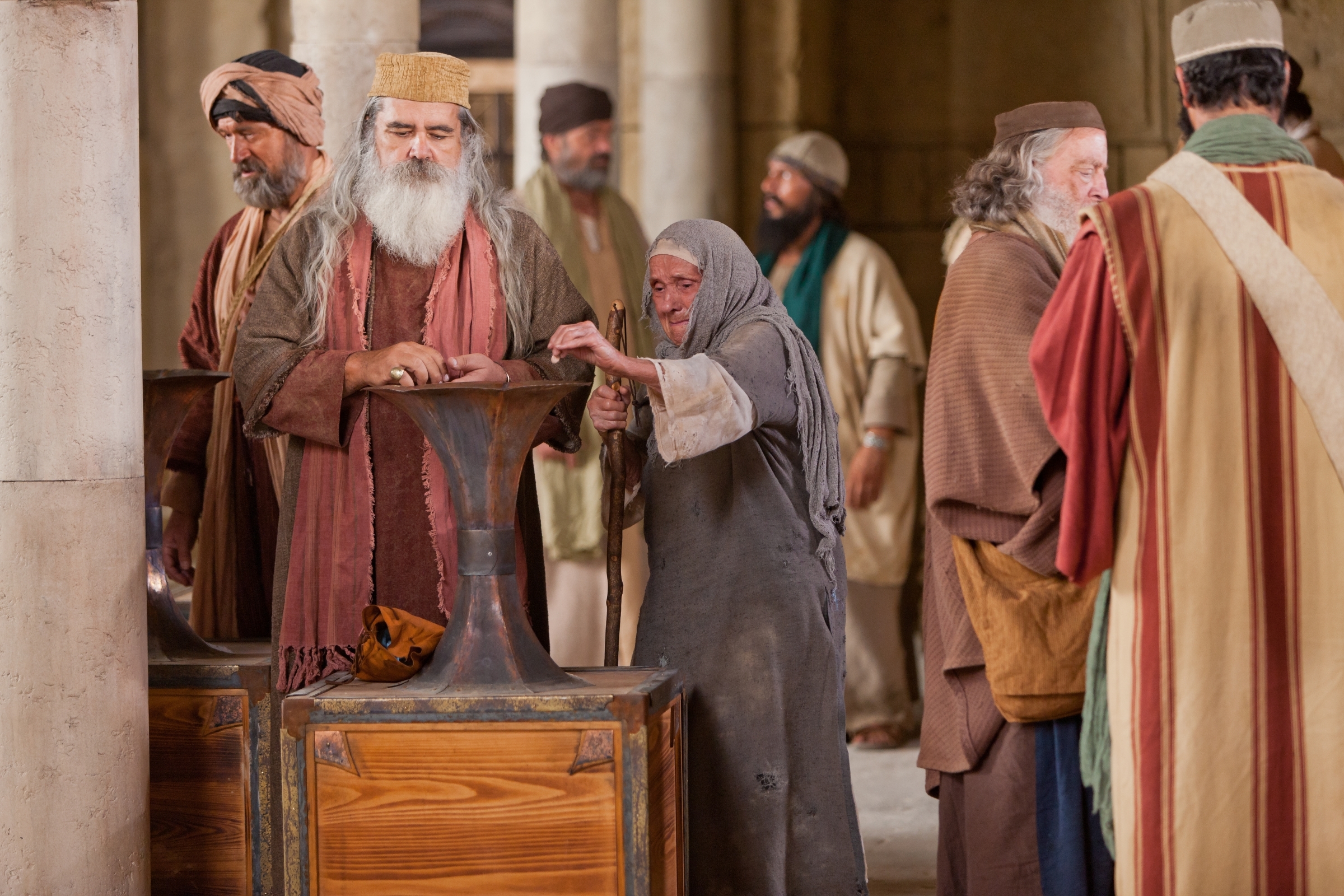
Mark 12:38-44
The Gospels of Mark and Luke both relay an incident involving a widow’s gift to God. She didn’t give much—just two mites—or did she?
The story is often called the story of the widow’s mite or the story of the widow’s offering. One day, Jesus was sitting with His disciples near the temple treasury watching people depositing money into the offering receptacles. The court of women held thirteen such receptacles, and people could cast their money in as they walked by. Jesus watched as the rich were contributing large sums of money, but then along came a widow with two small coins in her hand. The ESV calls them “two small copper coins, which make a penny” (Mark 12:41). The KJV calls the coins “mites.” These were the smallest denomination of coins. The widow put her coins into the box, and Jesus called His disciples to Him and pointed out her action: “Truly I tell you, this poor widow has put more into the treasury than all the others. They all gave out of their wealth; but she, out of her poverty, put in everything—all she had to live on” (Mark 12:43–44; cf. Luke 21:1–4).
There are several things that the story of the widow’s mite teaches us. First, God sees what man overlooks. The big gifts in the temple were surely noticed by people; that’s probably what the disciples were watching. But Jesus saw what no one else did: He saw the humble gift of a poor widow. This was the gift that Jesus thought worthy of comment; this was the gift that the disciples needed to be aware of. The other gifts in the treasury that day made a lot of noise as they jingled into the receptacles, but the widow’s mites were heard in heaven.
Second, God’s evaluation is different from man’s. The widow’s two mites added up to a penny, according to man’s tabulation. But Jesus said that she had given more than anyone else that day (Mark 12:43). How could this be, when “many rich people threw in large amounts” (Mark 12:41)? The difference is one of proportion. The rich were giving large sums, but they still retained their fortunes; the widow “put in everything—all she had to live on” (Mark 12:42). Hers was a true sacrifice; the rich had not begun to give to the level of her sacrifice.
Third, God commends giving in faith. Here was a woman in need of receiving charity, yet she had a heart to give. Even though the amount was negligible—what could a widow’s mite buy?—she gave it in faith that God could use it. The widow’s faith is also evident in the fact that she gave the last of her money. Like the widow of Zarephath, who gave her last meal to Elijah (see 1 Kings 17:7–16), the widow in the temple gave away her last means of self-support. Does that mean the widow left the temple completely destitute, went home, and died of starvation? No. The Bible teaches that God provides for our needs (Matthew 6:25–34). We don’t know the details of this particular widow’s future, but we can be certain that she was provided for. Just as God provided for the widow and her son in Elijah’s day (1 Kings 17:15–16), God also provided for the widow in Jesus’ day.
It is interesting that, just before Jesus commented on the widow’s mite, He commented on the scribes “who devour widows’ houses” (Mark 12:40). The religious officials of the day, instead of helping the widows in need, were perfectly content to rob them of their livelihood and inheritance. The system was corrupt, and the darkness of the scribes’ greed makes the widow’s sacrifice shine even more brightly. “God loves a cheerful giver” (2 Corinthians 9:7), and He is faithful to take care of His own.
